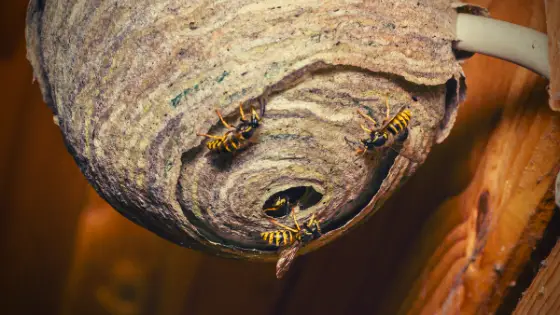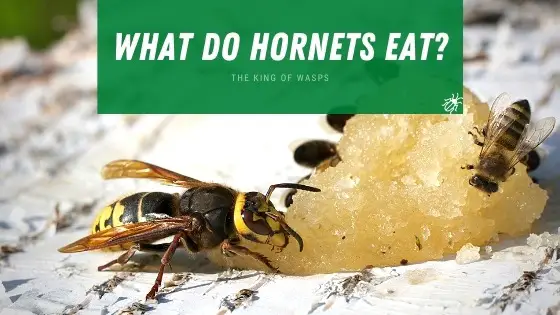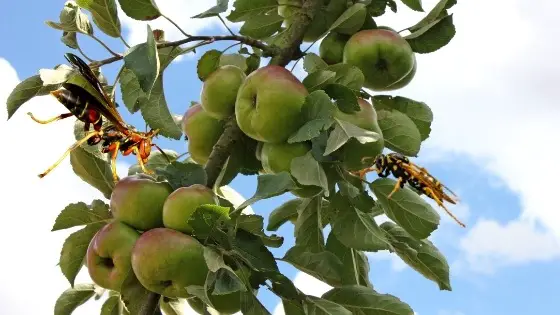Wasp Repellent For Skin
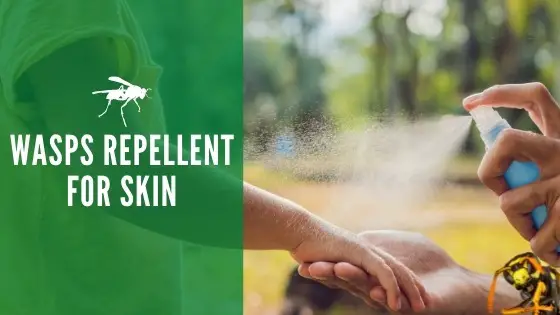
There is nothing as relaxing as a summer picnic, but unfortunately, it is not long before a few unwanted guests make their presence known. Wasps and yellow jackets are attracted to any sugary food or drink because they think it is nectar. So the next thing you are probably asking is what attracts wasps and how to keep them away.
How to Keep Wasps Away When You’re Outside
Wasps change their diets throughout the year according to their life cycle. Unlike other bees that are only attracted to sugars and nectars, wasps are omnivores. They need proteins, mainly from insects, to feed their larvae, and they need nectar to make honey as a food source for the winter. Typically, wasps do not bother people unless you are near their nest and they feel threatened.
Many wasps are beneficial and only eat one type of food, like the spider wasp that eats spiders or braconid wasps that eat tomato hornworms. These wasps usually do not bother people unless you are near their nest or have an accidental encounter.
The most common types of wasp that are a human nuisance are yellowjackets, paper wasps, and hornets. While their usual fare consists of insects feeding their larvae, they are attracted to sugary treats throughout the summer, especially during the fall when they try to build up their food supplies for the winter.
During the fall, yellowjackets become aggressive in their quest to scavenge food. This is when they might sting unprovoked. Many people have minor reactions, but some are allergic to them, and a wasp sting is a medical emergency. In any circumstance, finding a way to make you less attractive as a target will allow you to enjoy your late summer and fall activities in comfort.
What to Put on Your Skin to Repel Wasps
Several commercial bug spray products are available that use plant-based oils as a wasp repellent. Taking cues from these ingredients, you will find that eucalyptus oil, peppermint oil, and lemon oil are found in natural insect repellents.
One word of caution is to be careful about the types of essential oil you put on your skin because some can cause reactions in those who are sensitive, and make sure that you only use oils marked as food grade and approved for use in and on the body. Some plants are considered to be helpful as wasp repellents, and that can be used on your skin include:
- Spearmint
- Peppermint
- Thyme
- Eucalyptus
- Clove
- Lemongrass
You can mix these essential oils with a little water in a spray bottle, spray your skin directly, or spray your clothing. Make sure to shake the mixture before spraying, and you will have to reapply it every few hours. These oils might help convince the wasps to move on to more attractive targets, but there is no guarantee, especially when wasps become more aggressive in the late summer and fall.
Knowing what smells deter wasps can help, too. Citronella will also keep them away, but you can’t use this on your skin. Using a citronella candle or oil torch can help keep many types of flying insects away from your gathering. Cucumbers have a chemical in them that is a natural wasp repellent, too.
Some Final Advice
The best way to avoid a sting by a yellowjacket or hornet is to avoid attracting them in the first place. Do not leave food sitting out when it is not being consumed, and make sure to keep any garbage in a can with a tight lid. If one lands on your food, wait for it to leave or gently brush it away. Do not swat it or panic because this might make it sting you.
Squashing a wasp is a bad idea. They have tough outer bodies, and unless you do a thorough job, you will make them mad. Also, if you squash a wasp, it releases a pheromone to bring in more wasps to come to help. It is like sending out a signal to call in the troops.
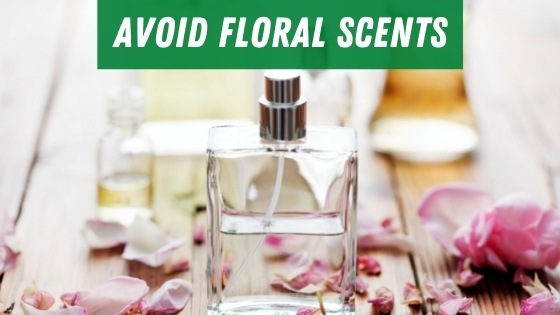
If you are going to an outdoor gathering, you can reduce your attractiveness to wasps by avoiding wearing floral scents and perfumes. You should also avoid wearing or using tablecloths with big, bold flowery patterns. They will think you are a flower and are more likely to seek you out.
You can kill a wasp by spraying it with soapy water (dish soap) that will clog the pores it uses to breathe, but this will more than likely make them aggressive before they die. Also, make sure to check bottles, cans, or other drinking containers before picking them up.
The wasp repellents in this article might help keep them at a distance so you can enjoy your summer fun. When dealing with yellowjackets, hornets, and other types of wasps, distance is always your best defense. If you are dealing with a major wasp problem or other stinging insect infestation, you should contact a pest control professional as soon as possible.
Sources
https://www.thespruce.com/wasp-repellant-5111360
https://extension.umn.edu/yard-and-garden-insects/wasps-and-bees

